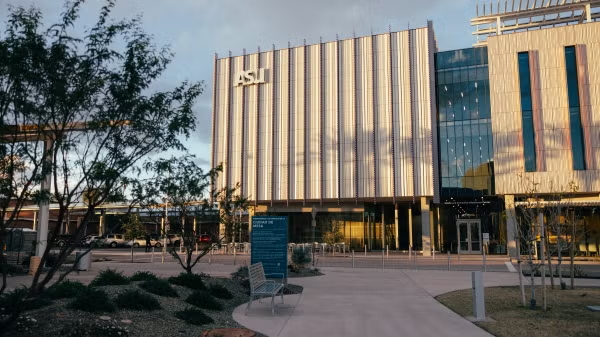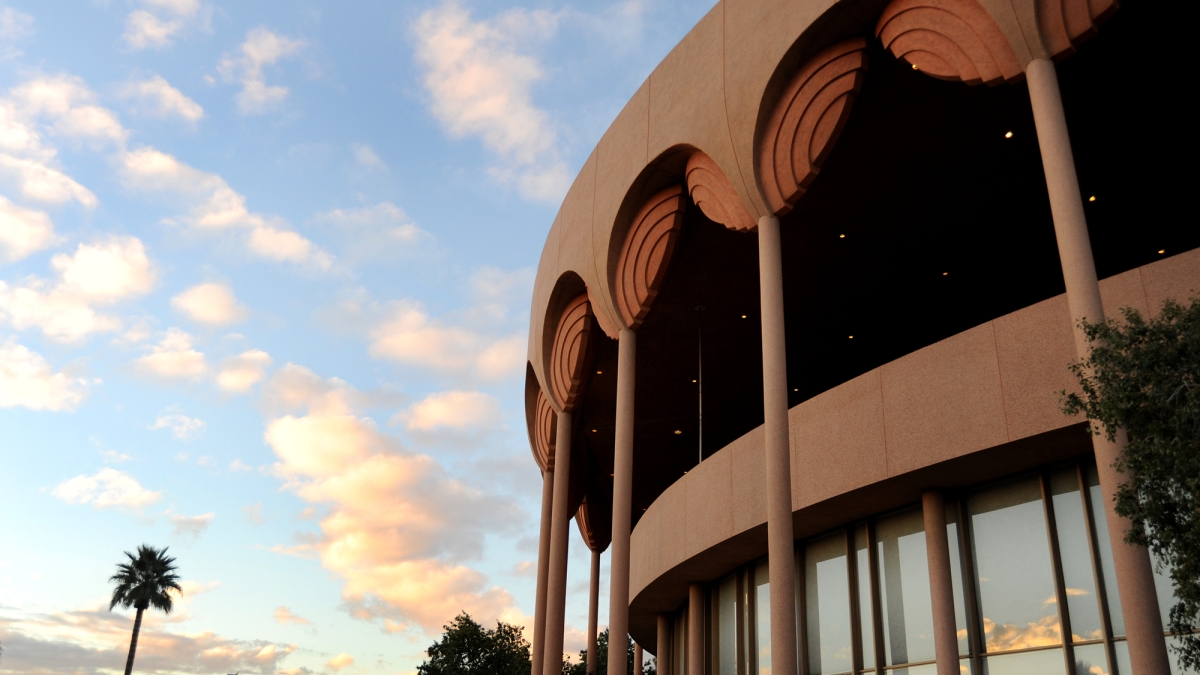A few summers ago, restaurateur Julian Wright had been sweating out his latest business venture.
Consecutive days of triple-digit temperatures had slowed business at La Bocca Urban Pizzeria + Wine Bar on Mill Avenue to a near crawl. Then he received an unexpected windfall from down the street.
“For years Gammage shows have brought additional patrons to my businesses,” said Wright, an Arizona State University alumnus who has delivered successful food-and-drink concepts to the Mill Avenue District since 2008, including his latest, Pedal Haus Brewery. “The second summer La Bocca was open, one of their Broadway tours practically saved us. We were packed every day for the run of the show.”
Wright’s story illustrates how the arts have evolved into a vital economic driver, a point underscored with the announcement Monday that ASU Gammage’s recently concluded Broadway season created an estimated $100 million economic impact on the greater Phoenix metropolitan area.
“That’s a very impressive number,” said Colleen Jennings-Roggensack, executive director for ASU Gammage and associate vice president of cultural affairs for ASU. “When people think of ASU Gammage, they usually associate us with entertainment and that’s fine. But we always try to emphasize what we do for the community. We not only bring exciting and relevant programming to the Valley, but we also present an economic bouquet to the state.”
For Jennings-Roggensack, the number represents a continued payoff of work that began 25 years ago when she took over operations of what she described at the time as a “fading beauty.” The Frank Lloyd Wright designed structure needed upgrades and Gammage operations were $2 million in the hole. It took a few years, but under Jennings-Roggensack’s direction ASU Gammage turned into a self-sustaining business model, driven by ticket sales and private support. Today, she says it’s run like a business, but with the heart of a nonprofit.
The Broadway season that wrapped June 30 included 10 weeks of productions, including “Book of Mormon” and “A Christmas Story: The Musical.” The shows attracted 400,000 visitors, who spent an average of $91 each on their night out. The season also boasted 13,000 subscribers.
The 3,000-seat venue is the largest university-based presenter of the performing arts in the world, and it has generated more than $550 million for the local economy since 2006 according to research by the Broadway League, an entertainment trade group.
Those numbers deserve respect said Herberger Institute Dean Steven J. Tepper, who says the arts can be both culturally rewarding for communities and financially advantageous for businesses such as hotels, taxis and restaurants.
“Businesses and creative workers want to locate to places with thriving art scenes,” said Tepper, adding that artists start businesses at higher rates than most other professionals and create vibrant neighborhoods that increase home values.
“There is no silver bullet for economic development,” Tepper said, “but if there was one, the arts would be a contender.”
The community can expect bigger numbers next season, Jennings-Roggensack said. She estimates as many as 500,000 people will visit ASU Gammage and that about 15,000 will purchase season ticket subscriptions.
The 2016-2017 Broadway season at ASU Gammage kicks off with the Tony Award-winning production of “Cabaret” on Sept. 13.
More Arts, humanities and education

Award-winning playwright shares her scriptwriting process with ASU students
Actions speak louder than words. That’s why award-winning playwright Y York is workshopping her latest play, "Becoming Awesome," with actors at Arizona State University this week. “I want…

Exceeding great expectations in downtown Mesa
Anyone visiting downtown Mesa over the past couple of years has a lot to rave about: The bevy of restaurants, unique local shops, entertainment venues and inviting spaces that beg for attention from…

Upcoming exhibition brings experimental art and more to the West Valley campus
Ask Tra Bouscaren how he got into art and his answer is simple.“Art saved my life when I was 19,” he says. “I was in a dark place and art showed me the way out.”Bouscaren is an …


